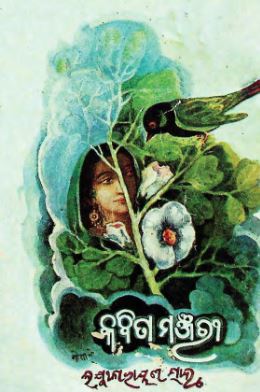In “Kabita Manjari,” Purnachandra Mahapatra showcases his poetic prowess through a collection of verses that delve into the depths of human emotions, spiritual inquiry, and the complexities of life. The poems in this book likely reflect Mahapatra’s contemplative nature, his keen observations of the world around him, and his profound engagement with the teachings of spiritual luminaries like Sri Aurobindo.
The influence of Sri Aurobindo’s philosophy and spiritual vision on Mahapatra’s poetry is a prominent theme in “Kabita Manjari.” Through his verses, the poet might explore the themes of inner awakening, divine love, and the quest for transcendence, drawing inspiration from the profound insights of Sri Aurobindo to illuminate the path of self-discovery and spiritual evolution.
Furthermore, the art of translation likely plays a significant role in this collection. Mahapatra, known for his expertise in the field of translation, may have included translated works of Sri Aurobindo’s poetry or prose in “Kabita Manjari,” showcasing his skill in bridging linguistic and cultural barriers to bring the depth and beauty of another’s work to a wider audience in Odia.
The act of translation is a delicate process that requires a deep understanding of both the original text and the target language, as well as a keen sensitivity to nuances of meaning, rhythm, and poetic expression. Through his translations, Mahapatra not only pays homage to the original work but also infuses it with his own poetic flair and linguistic creativity, creating a literary tapestry that resonates with readers on a profound level.
“Kabita Manjari” serves as a testament to Purnachandra Mahapatra’s poetic talent, his spiritual inclinations, and his mastery of the art of translation. This collection of poetry represents a fusion of artistic creativity, spiritual exploration, and linguistic skill, offering readers a glimpse into the soul-stirring world of Odia literature enriched by the wisdom of Sri Aurobindo and the transformative power of poetic expression.
In this engaging memoir published in Odia in 2016, “Purnachandra Mahapatranka Smrutire” delves into the life and times of the esteemed Purnachandra Mahapatra through the lens of someone named Purna Bhaina. This literary work serves as a touching tribute or a personal recollection of the experiences shared with or inspired by Purnachandra Mahapatra, offering readers a deeper insight into his persona and contributions.
The pages of this book likely unfold a tapestry of anecdotes, insights, and reflections that paint a vivid picture of Purnachandra Mahapatra—the person, the artist, or the figure of influence. Readers can expect to embark on a journey through time, exploring the moments shared, lessons learned, and the impact left by Purnachandra Mahapatra on the author and, by extension, on the community or society as a whole.
Through the work of Purna Bhaina, readers may uncover the nuances of relationships, the warmth of shared memories, and perhaps even the profound wisdom distilled from the interactions with Purnachandra Mahapatra. This memoir likely captures the essence of a personality who has left a lasting mark in the hearts and minds of many, resonating with readers on a personal and emotional level.
With each turn of the page, “Purnachandra Mahapatranka Smrutire” may unfold a narrative that celebrates the legacy, the character, and the essence of Purnachandra Mahapatra, offering readers a glimpse into the life and times of a remarkable individual through the eyes and experiences of the author, Purna Bhaina.
Overall, this memoir serves as a testament to the enduring impact of individuals like Purnachandra Mahapatra and the significance of preserving memories and stories that shape our understanding of the past and inspire us for the future. It stands as a poignant reminder of the power of storytelling and reminiscence to connect us to our roots and to the remarkable individuals who have influenced our lives.
Books Info
| Books name | Kabita Manjari |
| Author | Lakshinarayan Sahu |
| No Of pages | 47 |
| Publisher | Nabaranga |
| Publication | 1953 |
| Printed At | Jagannatha Process Pvt.Ltd |
| Distributor | NA |

